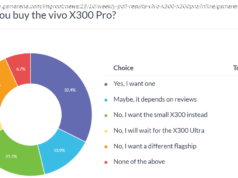Make America Socialist Again?
A proposal by the Trump administration to effectively nationalize next-generation 5G networks in America triggered an angry reaction from the mobile industry, former government officials, and federal regulator the FCC.
According to a leaked 30-page document [PDF], the White House is considering getting the federal government to pay for and build a single nationwide high-speed 5G cellular network which it will lease to mobile operators.
While that approach may have some advantages, it would also represent a huge reversal from today’s capitalist system where mobile operators ostensibly build their own networks and compete with one another. As such, the idea of a federal network has not gone down well with the industry.
« The wireless industry agrees that winning the race to 5G is a national priority, » a statement from the CEO of mobile industry association CTIA, Meredith Attwell Baker said, adding: « The government should pursue the free market policies that enabled the US wireless industry to win the race to 4G. »
Meanwhile, Jonathan Spalter, CEO and president of comms industry body US Telecom, said:
A former head of the National Telecommunications and Information Administration ( NTIA) – the US government wing that oversees such policies – was less diplomatic. « This sounds like an intern project, » said Larry Strickling at an internet policy conference in Washington DC on Monday morning.
His successor David Redl gave a keynote speech today at the same conference. He did not directly mention the nationalization plan, but did note: « Last year, the President made it clear that 5G network security is a critical element of our national security. »
He added that, especially with the internet of things, « security both in the device and in the network itself will be important to ensuring not only our national leadership in wireless, but also to ensuring access to a vital part of our national economy. »
When it came to the idea of the federal government building its own network, he was oblique: « NTIA will continue to work with our colleagues across the Federal government to coordinate a national strategy on spectrum access and will work the private sector to ensure that the standards process for 5G wireless services continue to promote our national interest in security. »
The leadership of the Federal Communications Commission (FCC) was less obtuse. All five FCC commissioners rushed out statements criticizing the proposal.
« I oppose any proposal for the federal government to build and operate a nationwide 5G network, » said chairman Ajit Pai. « The main lesson to draw from the wireless sector’s development over the past three decades – including American leadership in 4G – is that the market, not government, is best positioned to drive innovation and investment… Any federal effort to construct a nationalized 5G network would be a costly and counterproductive distraction from the policies we need to help the United States win the 5G future. »
Commissioner Michael O’Reilly was more blunt: « I’ve seen lead balloons tried in DC before but this is like a balloon made out of a Ford Pinto. » He called the proposal « nonsensical. » Likewise, Commissioner Brendan Carr said « any suggestion that the federal government should build and operate a nationwide 5G network is a non-starter. «
Commissioner Mignon Clyburn said in a statement: « A network built by the federal government, I fear, does not leverage the best approach needed for our nation to win the 5G race. » And Commissioner Jessica Rosenworcel tweeted: « This correctly diagnoses a real problem. There is a worldwide race to lead in 5G and other nations are poised to win. But the remedy proposed here really misses the mark. »
So far the mobile operators themselves have refused to directly comment on the proposal.
Aside from the remarkably swift condemnation – the plan was only revealed one day earlier when it was leaked to online news site Axios – it is the statement by Rosenworcel that sheds most light on what happened.
The proposal was developed by a senior official on the National Security Council, and has as it main focus fears over security and in particular concerns that China may be able to hack a future 5G network because Chinese companies are the leading makers of 5G infrastructure hardware and software.
Essentially, it is feared Beijing will backdoor all the kit going into America’s next-gen wireless broadband networks. And if anything’s going to be backdoored around here then, by God, it’s going to have American backdoors.
« China has achieved a dominant position in the manufacture and operation of network infrastructure, » reads a bullet point on a presentation deck. The next reads: « China is the dominant malicious actor in the information domain. »
But the US can catch up, the presentation argues, and pushes the idea of a federally built 5G network as the modern day equivalent of President Eisenhower’s national highway system or President Kennedy’s space race.
It even falls back on the US government’s long-held desire to export American ideals to the rest of the globe. « Eventually, this effort could help inoculate developing countries against Chinese neo-colonial behavior, » the memo reads.
Sponsored: Continuous Lifecycle London 2018 – Early Bird Tickets Now Available






